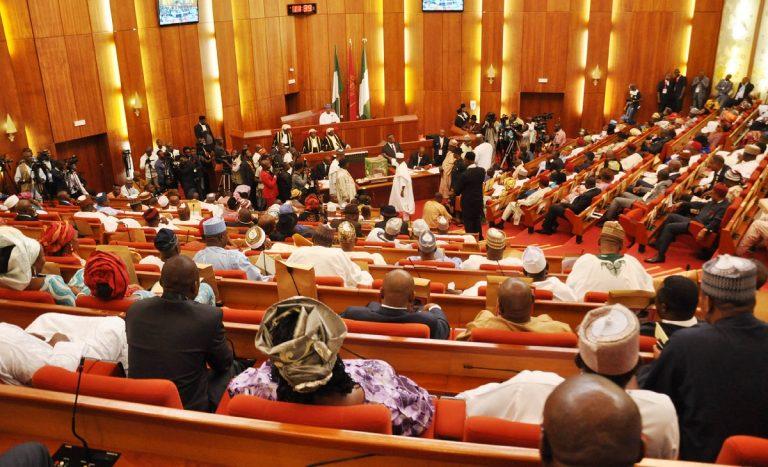Nigeria’s Legislative Chambers Approve Comprehensive Tax Reforms
In a significant stride towards overhauling Nigeria’s fiscal framework, the National Assembly has passed four harmonized tax reform bills, now poised for President Bola Ahmed Tinubu’s assent. This legislative milestone marks a pivotal moment in the administration’s agenda to modernize the country’s tax system and enhance revenue generation.
The approved bills include:
1. Joint Revenue Board (Establishment) Bill, 2025 (SB. 583)
2. Nigeria Revenue Service (Establishment) Bill, 2025 (SB. 584)
3. Nigeria Tax Administration Bill, 2025 (SB. 585)
4. Nigeria Tax Bill, 2025 (SB. 586)   
These bills, initially transmitted to the National Assembly in November 2024, underwent meticulous scrutiny and reconciliation by a joint conference committee comprising members from both the Senate and the House of Representatives. The committee addressed and harmonized discrepancies between the versions passed by each chamber, ensuring a unified legislative package ready for executive consideration.  
Senator Mohammed Sani Musa, Chairman of the Senate Committee on Finance, highlighted the significance of these reforms, stating that they aim to “modernize and harmonize Nigeria’s tax architecture to ensure greater revenue mobilization and accountability.” 
Key provisions within the harmonized bills include:
• Imposition of a 4% development levy on assessable profits of all companies, excluding small and non-resident companies. The levy is to be collected by the Nigeria Revenue Service and allocated to various development funds. 
• Introduction of a 5% surcharge on chargeable fossil fuel products, aimed at promoting environmental sustainability and generating additional revenue. 
• Reorganization of tax collection responsibilities, transferring certain fiscal duties, such as royalty and petroleum profit tax collection, to the newly proposed Nigeria Revenue Service. 
The passage of these bills is anticipated to streamline tax administration, reduce redundancies, and foster a more transparent and efficient tax system in Nigeria. As the nation awaits President Tinubu’s assent, stakeholders express optimism that these reforms will catalyze economic growth and enhance public service delivery.
⸻According to Nigeriaobserver
#Nigeria #TaxReform #NationalAssembly #PresidentTinubu
In a significant stride towards overhauling Nigeria’s fiscal framework, the National Assembly has passed four harmonized tax reform bills, now poised for President Bola Ahmed Tinubu’s assent. This legislative milestone marks a pivotal moment in the administration’s agenda to modernize the country’s tax system and enhance revenue generation.
The approved bills include:
1. Joint Revenue Board (Establishment) Bill, 2025 (SB. 583)
2. Nigeria Revenue Service (Establishment) Bill, 2025 (SB. 584)
3. Nigeria Tax Administration Bill, 2025 (SB. 585)
4. Nigeria Tax Bill, 2025 (SB. 586)   
These bills, initially transmitted to the National Assembly in November 2024, underwent meticulous scrutiny and reconciliation by a joint conference committee comprising members from both the Senate and the House of Representatives. The committee addressed and harmonized discrepancies between the versions passed by each chamber, ensuring a unified legislative package ready for executive consideration.  
Senator Mohammed Sani Musa, Chairman of the Senate Committee on Finance, highlighted the significance of these reforms, stating that they aim to “modernize and harmonize Nigeria’s tax architecture to ensure greater revenue mobilization and accountability.” 
Key provisions within the harmonized bills include:
• Imposition of a 4% development levy on assessable profits of all companies, excluding small and non-resident companies. The levy is to be collected by the Nigeria Revenue Service and allocated to various development funds. 
• Introduction of a 5% surcharge on chargeable fossil fuel products, aimed at promoting environmental sustainability and generating additional revenue. 
• Reorganization of tax collection responsibilities, transferring certain fiscal duties, such as royalty and petroleum profit tax collection, to the newly proposed Nigeria Revenue Service. 
The passage of these bills is anticipated to streamline tax administration, reduce redundancies, and foster a more transparent and efficient tax system in Nigeria. As the nation awaits President Tinubu’s assent, stakeholders express optimism that these reforms will catalyze economic growth and enhance public service delivery.
⸻According to Nigeriaobserver
#Nigeria #TaxReform #NationalAssembly #PresidentTinubu
Nigeria’s Legislative Chambers Approve Comprehensive Tax Reforms
In a significant stride towards overhauling Nigeria’s fiscal framework, the National Assembly has passed four harmonized tax reform bills, now poised for President Bola Ahmed Tinubu’s assent. This legislative milestone marks a pivotal moment in the administration’s agenda to modernize the country’s tax system and enhance revenue generation.
The approved bills include:
1. Joint Revenue Board (Establishment) Bill, 2025 (SB. 583)
2. Nigeria Revenue Service (Establishment) Bill, 2025 (SB. 584)
3. Nigeria Tax Administration Bill, 2025 (SB. 585)
4. Nigeria Tax Bill, 2025 (SB. 586)   
These bills, initially transmitted to the National Assembly in November 2024, underwent meticulous scrutiny and reconciliation by a joint conference committee comprising members from both the Senate and the House of Representatives. The committee addressed and harmonized discrepancies between the versions passed by each chamber, ensuring a unified legislative package ready for executive consideration.  
Senator Mohammed Sani Musa, Chairman of the Senate Committee on Finance, highlighted the significance of these reforms, stating that they aim to “modernize and harmonize Nigeria’s tax architecture to ensure greater revenue mobilization and accountability.” 
Key provisions within the harmonized bills include:
• Imposition of a 4% development levy on assessable profits of all companies, excluding small and non-resident companies. The levy is to be collected by the Nigeria Revenue Service and allocated to various development funds. 
• Introduction of a 5% surcharge on chargeable fossil fuel products, aimed at promoting environmental sustainability and generating additional revenue. 
• Reorganization of tax collection responsibilities, transferring certain fiscal duties, such as royalty and petroleum profit tax collection, to the newly proposed Nigeria Revenue Service. 
The passage of these bills is anticipated to streamline tax administration, reduce redundancies, and foster a more transparent and efficient tax system in Nigeria. As the nation awaits President Tinubu’s assent, stakeholders express optimism that these reforms will catalyze economic growth and enhance public service delivery.
⸻According to Nigeriaobserver
#Nigeria #TaxReform #NationalAssembly #PresidentTinubu
0 التعليقات
·0 المشاركات
·815 مشاهدة




